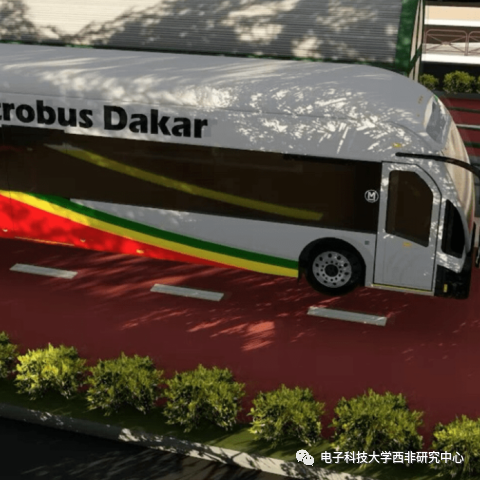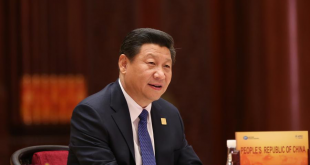Published: June 08,2023
By Koffi Dumor

Africa50 is an infrastructure investment platform that was established by the African Development Bank in 2016 with the goal of mobilizing private sector funding for infrastructure development in Africa. The organization’s focus is on projects that are both commercially viable and have a positive impact on economic development and social progress in Africa.
Senegal is one of the countries in which Africa50 has invested. In 2018, Africa50 announced that it had invested in the Taiba Ndiaye wind power project in Senegal, which is expected to be one of the largest wind farms in West Africa. The project is expected to have a total capacity of 158 megawatts and will provide electricity to over 2 million people.
In addition to the Taiba N’Diaye wind power project, Africa50 has also invested in other infrastructure projects in Senegal, such as the Dakar-Diamniadio toll highway and the Dakar Regional Express Train. These projects are expected to have a significant impact on the country’s economy and contribute to sustainable development.
Source: Author from https://www.africa50.com/investing-for-growth/projects-investments/malicounda-power-plant/
Overall, Africa50’s investments in Senegal align with the country’s development objectives, which include increasing access to reliable and affordable electricity, improving transportation infrastructure, and promoting sustainable economic growth. By investing in infrastructure projects that have a positive impact on the economy and the environment, Africa50 is helping to support sustainable development in Senegal. The electricity generated will be sold under a 20-year power purchase agreement and fed into the network through an existing distribution substation.
In addition to its investment activities, Africa50 has also been involved in promoting sustainable development in Senegal through various initiatives. For example, the organization has supported the Senegal Green Bond Program, which aims to raise funds for green projects and promote sustainable investment in the country.
Moreover, Africa50 has also launched a technical assistance program for African countries, including Senegal, to help develop bankable infrastructure projects. This program provides support in project preparation, feasibility studies, and other technical areas, with the aim of increasing the number of sustainable infrastructure projects in Africa.
Source: Author from Africa50’s Cooperation with Senelecto Develop Power Plant Lauded (https://www.africa50.com/news-insights/news/africa50s-cooperation-with-senelec-to-develop-power-plant-lauded-166/)
Furthermore, Africa50 has also collaborated with other organizations in Senegal to promote sustainable development. For instance, the organization has partnered with the government of Senegal and the World Bank to support the development of the Dakar Bus Rapid Transit system, which aims to reduce carbon emissions and improve transportation efficiency in the country.
The Senegalese capital Dakar plans to restructure its transport network by 2025 with the help of a Bus Rapid Transit project operated exclusively with electric buses. One year ago, infrastructure investor Meridiam signed the concession contract for the project, which sees Meridian working together with partners Keolis and Fonsis. Dakar BRT project represents a total investment.
A concrete project in favor of the energy transition, offering not only a solution adapted to the challenge of climate change but also an efficient alternative to the existing diesel bus network. It is scheduled to be in service by the end of 2023.
Source: Author from https://maps-senegal.com/senegal-map
In conclusion, Africa50’s investments and initiatives in Senegal demonstrate the organization’s commitment to promoting sustainable development in the country. Through its investments in infrastructure projects, support for green finance initiatives, technical assistance programs, and collaborations with other organizations, Africa50 is contributing to Senegal’s efforts to achieve sustainable economic growth and development.
AFrica50 and Belt and Road initiative
Africa50 is an infrastructure investment platform that was established by African countries and the African Development Bank in 2015. Its mission is to mobilize private sector capital for infrastructure development in Africa, with a focus on high-impact projects that can help drive economic growth and improve people’s lives. Africa50 works closely with governments, private sector investors, and other development partners to identify, structure, and finance infrastructure projects across the continent.
Kenya: The Mombassa-Nairobi Railway– Connecting Capitals To Ports
The Belt and Road Initiative (BRI), on the other hand, is a global infrastructure development strategy launched by the Chinese government in 2013 (KoffiDumor, et al. (2022)). The initiative aims to build a network of infrastructure projects – including roads, railways, ports, and other facilities – connecting China to Asia, Europe, Africa, and beyond.
The BRI is seen as a way for China to expand its economic and political influence around the world, and to create new markets for Chinese goods and services.”China through the Belt and Road Initiative has come at the right time when Africa is in critical need of infrastructure development and improved global trade opportunities,” said Mutebi. “China’s Belt Initiative has provided a platform to low and middle-income economies in Africa to register significant growth in terms of infrastructure development, job creation, and improved trading opportunities,” he added.
Furthermore “Through Belt and Road Initiative, roads, railways, bridges, hospitals, schools and airports among others, have been constructed in Africa, which has boosted trade, increased job creation, improved transport services, and education and health among Eastern Africa countries (Shurong, Zhao, et al. (2022).
Nairobi Express Highway
While both Africa50 and the Belt and Road Initiative focus on infrastructure development, they differ in their approach and scope. Africa50 is a regional platform that aims to mobilize private sector investment for infrastructure development in Africa, while the BRI is a global strategy led by the Chinese government with a much broader scope. However, both initiatives share a common goal of promoting economic development and improving infrastructure in Africa, which could lead to significant benefits for the continent and its people.
East African Infrastructure Projects
Ethiopia: The Addis-Ababa to Djibouti Railway
Dumor Koffi (PhD) is a researcher at University of Electronic Science and Technology Chengdu, Sichuan, China
 Africa -China Review Africa -China Cooperation and Transformation
Africa -China Review Africa -China Cooperation and Transformation
